monarchy
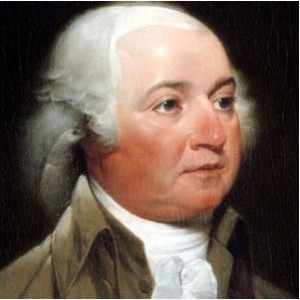 His Elective Majesty…sounds almost laughable, but it was almost the proper way to address the President of the United States, a fact that some presidents would probably have liked very much. Some presidents have tried to “rule” as a king would have, so they figure, why not buy in whole heartedly. One such president, who in fact made the original suggestion of title, was none other than, at the time, Vice President John Adams. The idea came from the fact that other heads of state are known by honorifics such as “His Excellency” and such, but United States presidents are only ever Mr President…or “sir” in a pinch. I’m sure that John Adams already had his sights set on becoming president at some point, and the second president of the United States seemed as good a time to run as any…or maybe he liked his own idea very much.
His Elective Majesty…sounds almost laughable, but it was almost the proper way to address the President of the United States, a fact that some presidents would probably have liked very much. Some presidents have tried to “rule” as a king would have, so they figure, why not buy in whole heartedly. One such president, who in fact made the original suggestion of title, was none other than, at the time, Vice President John Adams. The idea came from the fact that other heads of state are known by honorifics such as “His Excellency” and such, but United States presidents are only ever Mr President…or “sir” in a pinch. I’m sure that John Adams already had his sights set on becoming president at some point, and the second president of the United States seemed as good a time to run as any…or maybe he liked his own idea very much.
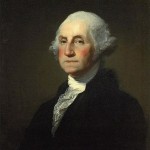
Apparently, thinking that the office of the President of the United States needed a title with more grandeur, Adams suggested that a president should be referred to as either “His Elective Majesty,” “His Mightiness,” or the slightly excessive “His Highness, the President of the United States of America and the Protector of their Liberties.” Just imagine any of those ideas. Every one of them make me giggle. Just take a moment to say (out loud) those titles in connection with the president…any president. With some presidents, any one of these titles is hilarious, and I’ll let you to decide to whom that statement applies, because these days we all have very specific opinions on the matter.
In those days, Washington was very aware of public fear about their newly won democracy slipping back into a 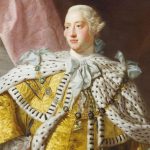 monarchy. They didn’t want this new nation to be too similar to England. They didn’t want this newly free nation to become once again ruled by a different kind of monarchy. So, they refused to allow the president to be titled as anything other than “The President of the United States.” They were right, of course, because the United States is not a “spin-off” of England…like England 2.0. The United States is a very unique nation…unlike any other, before her or after her. This nation was founded by people who refused to be told what to believe anymore. That is why they left England, where they were forced to live under a “state religion.” The nation was founded as “one nation, under God.” We would not have a king, because Jesus was our King of kings. We couldn’t give that title to a mere man.
monarchy. They didn’t want this new nation to be too similar to England. They didn’t want this newly free nation to become once again ruled by a different kind of monarchy. So, they refused to allow the president to be titled as anything other than “The President of the United States.” They were right, of course, because the United States is not a “spin-off” of England…like England 2.0. The United States is a very unique nation…unlike any other, before her or after her. This nation was founded by people who refused to be told what to believe anymore. That is why they left England, where they were forced to live under a “state religion.” The nation was founded as “one nation, under God.” We would not have a king, because Jesus was our King of kings. We couldn’t give that title to a mere man.
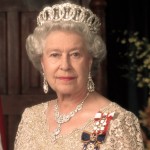
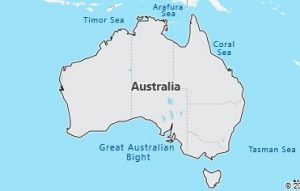 As nations grow in size, population, or power, many no longer want to be under the rule of another nation, even one that helped get them to where they are, and even one that has owned their land for years. It is something we, as Americans can’t really fathom, considering that we fought the Revolutionary War to leave British rule.
As nations grow in size, population, or power, many no longer want to be under the rule of another nation, even one that helped get them to where they are, and even one that has owned their land for years. It is something we, as Americans can’t really fathom, considering that we fought the Revolutionary War to leave British rule.
The decision was very different for Australia on November 6, 1999. Treasurer Wayne Swan and senior opposition figure Malcolm Turnbull, who once was Australia’s Republican Movement president, came together in the capital Canberra on the prior Monday to launch a book of essays called ‘Project Republic: Plans and Arguments for a New Australia’. Mr Turnbull, who sits on the front bench for the conservative opposition, described this latest push as “simply, purely patriotic” and called for an ‘interactive plebiscite’ to use cyberspace to better inform Australians of the issues surrounding constitutional change.
As it was, many feared the change, and the work and uncertainty that could accompany it. Still others, like being a part of the monarchy. “Many argue that the sexy celebrity status of William and Kate will sweep all before it and their star quality will revive the monarchy in Australia. I don’t think so,” Turnbull writes. “They will certainly be far more interesting and telegenic than Charles and Camilla – but I am not convinced that will translate into enhanced support for William (or indeed Charles) remaining our head of state.” His opinions aside, the people of Australia voted and decided that they just weren’t ready, and quite possibly they never would be ready to walk away from the British Monarchy. That actually happened in America too, because while 
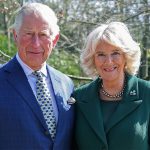 the overwhelming number of citizens wanted to go for independence, there were those who did not.
the overwhelming number of citizens wanted to go for independence, there were those who did not.
In Australia, it didn’t appear that the situation would have come to war, as it had in America, but one never really knows what can trigger a war of this type. I guess that in the case of Australia, if they are tired of the Queens rule, they have chosen to wait and see what the future ruling parties might bring. If they don’t like the outcome, they could always choose to break away at a later date.

